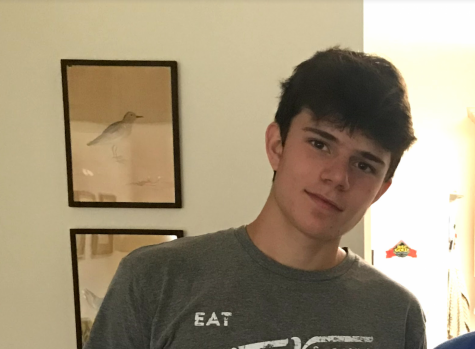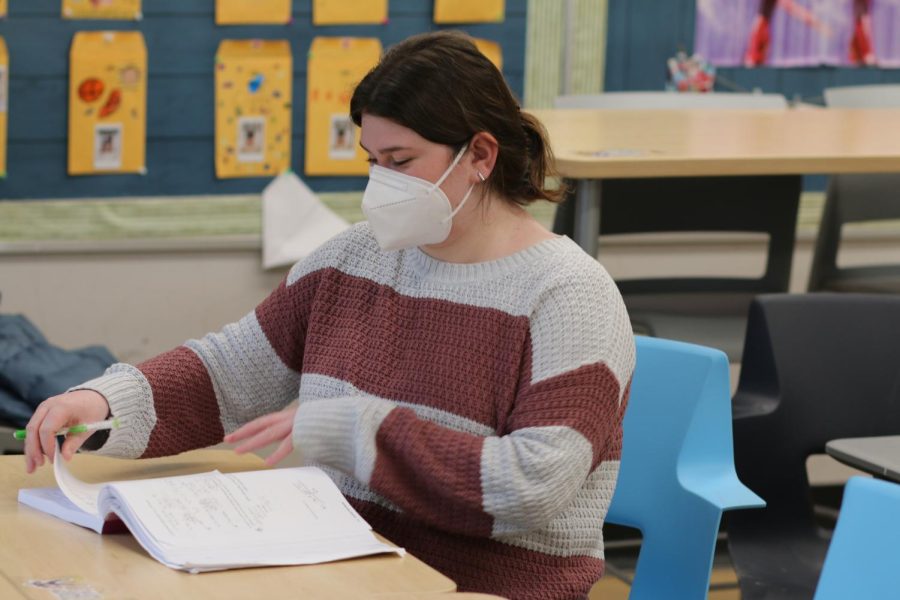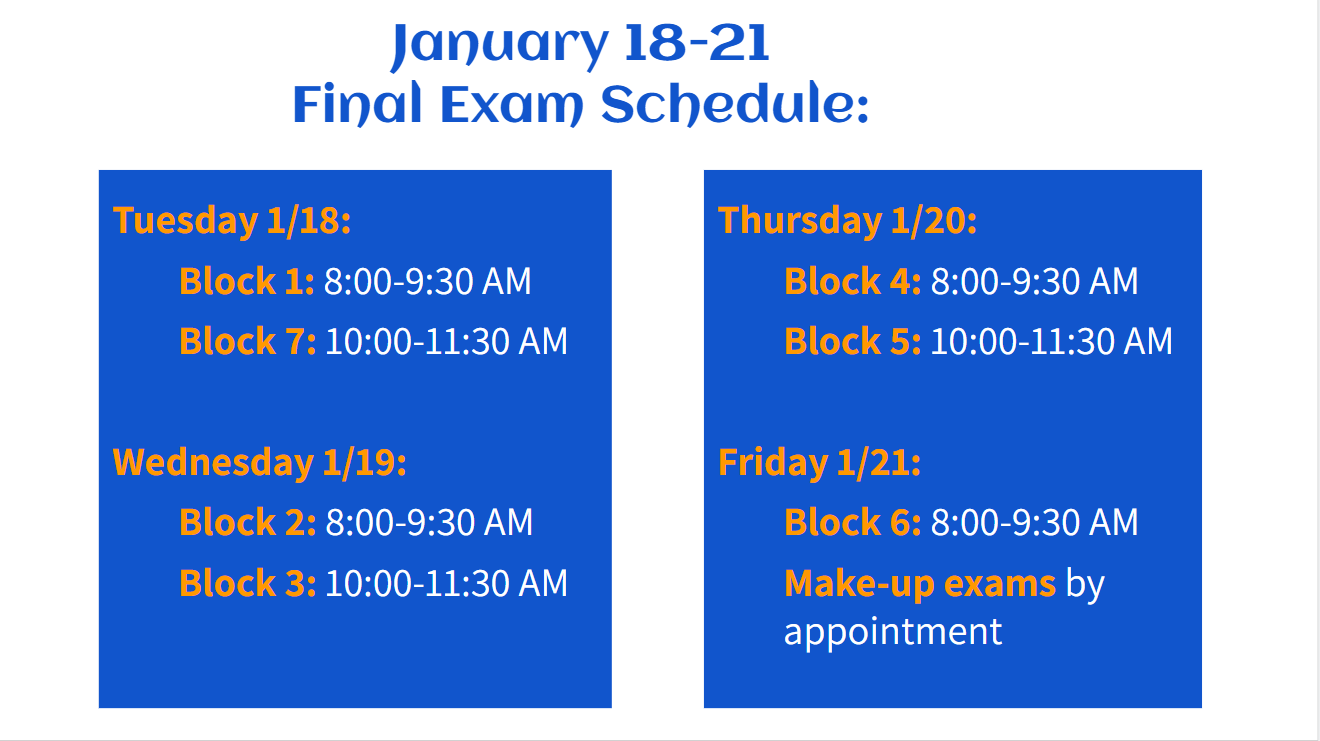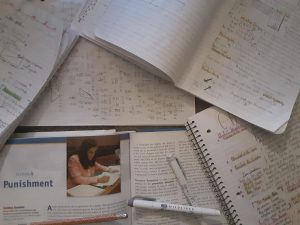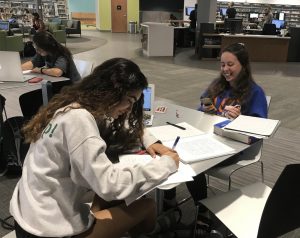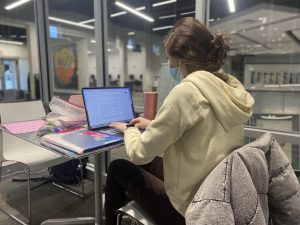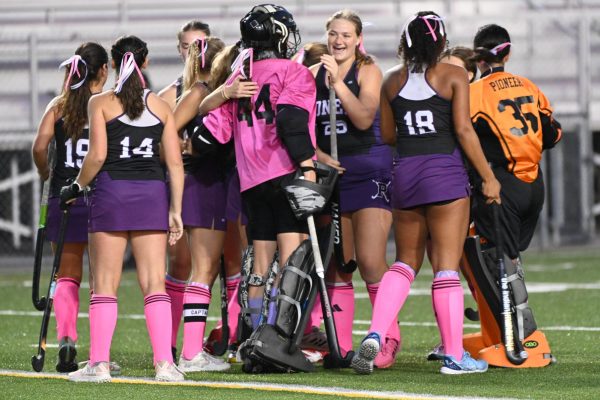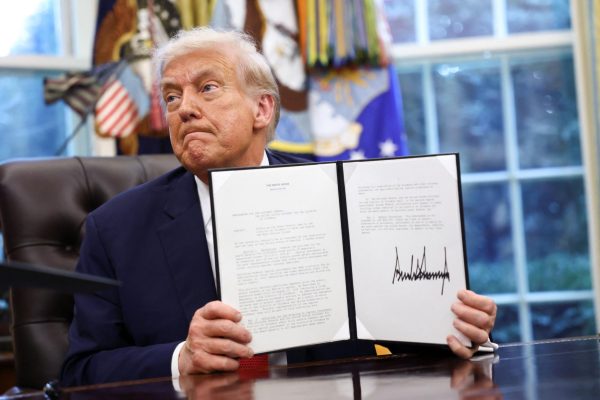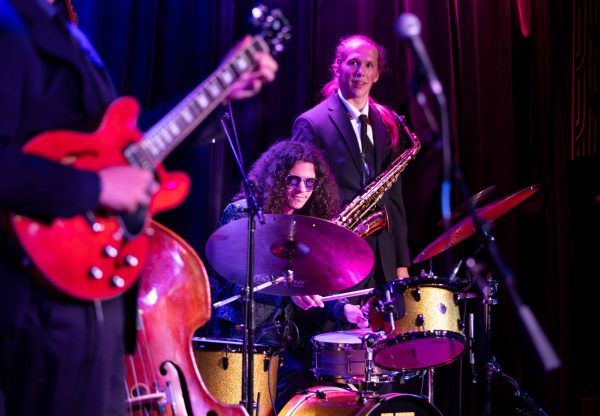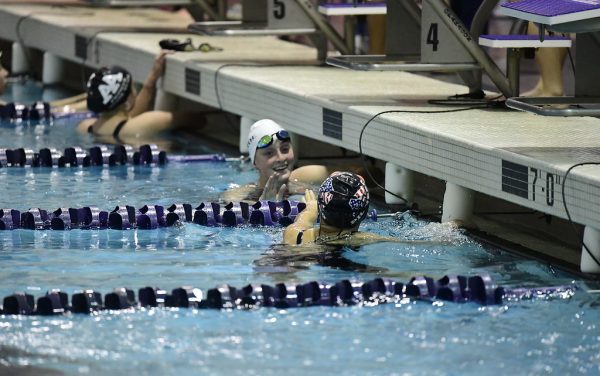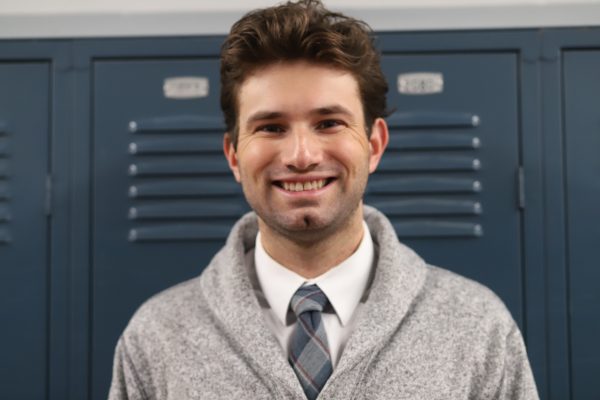Finals Week Descends
As semester one finals week approaches, many CHS students are experiencing anxiety or stress.
Oliver Lete-Straka, a CHS senior, thinks that the lack of a traditional final in online school has caused pre-test anxiety to build up even more.
“I haven’t had a final in so long and I feel unprepared,” Lete-Straka said. “I feel like I don’t know how to study as well.”
For Lete-Straka, being a senior also means some added stress. He feels there is more weight on this final because colleges are still watching— a bad grade on a final, as unlikely as it may be, could mean acceptance from a school being rescinded.
Lete-Straka personally thinks that there shouldn’t be finals at all. He finds traditional tests anxiety-inducing, and thinks an alternative of final projects are more useful.
“Instead of having a question that we would’ve studied in the beginning of the year and having it regurgitated in our face and having to study again, we had to think about it and go through a project.”
Lete-Straka believes that final projects are a more effective way to ensure students are truly learning instructed material. “I feel like you’re kind of just finding that information, trying to remember it and get it down by the finals, and then just forgetting it,” Lete-Straka said. “Through project finals I feel like you remember it better.”
As much as Lete-Straka has grievances about our current testing system, he has some experience navigating through them as a senior. He thinks that studying is helpful, but it is even better with friends. Additionally, he recommends going to teachers’ office hours.
“Even better, go to office hours with friends. I feel like for some people, it’s kind of embarrassing to ask teachers for help,” Lete-Straka said. “When you do need help, you’re going there with another person so then it’s less embarrassing. So overall, it’s just a better experience.”
Kai Ellison-Batt, a CHS freshman, says he only feels a little nervous. He, unlike some, prefers taking traditional tests rather than larger writing assignments.
“With a test, you usually just answer a question, but with some of the others, like there’s one in literature I struggled with where you have to write a whole formative analytical essay,”
Ellison-Batt said. “I just prefer tests because it’s more black and white, [you just] answer a question.”
Ellison-Batt generally is not very concerned, but he does feel some anxiety for his science final. Henry Lipp, a CHS sophomore, shares this science exam concern.
“They’ve always allowed us to use our notes for tests, but it might be different for finals,” Lipp said. “So I’m probably going to ask my teacher about that today.”
However, with the notes he takes and review guides provided by teachers, Lipp has an arsenal of resources to use for studying and other preparation he does.
Ryan Silvester, who teaches social studies at CHS, is going to be giving his students in World History an exam, but it won’t be the same in his other classes. The exam is district-provided. In order to prepare for the exam, students have practiced defining specific people, events and ideas in history in a format similar to the actual test. Students in Silvester’s World History classes have also created flow charts and concept maps to “connect the dots” and understand the historical significance between the given terms.
“My hope is for students to focus on our four ideas for how we determine historical significance and use them to really get meaning out of this exam,” Silvester said. “That’s the key thing for exams. I don’t like thinking of like a, `I’m testing your knowledge’, it’s more of a way for [students] to show what you’ve learned over the course of the semester.”
Silvester thinks that doing the review packet is important. He also recommends creating flashcards and redoing activities done in class for additional practice. “Finding similarities among and between these different events and people and ideas helps determine that historical significance too.”
Finals week will be from January 18-21, with between one and two exams each day throughout the week.
